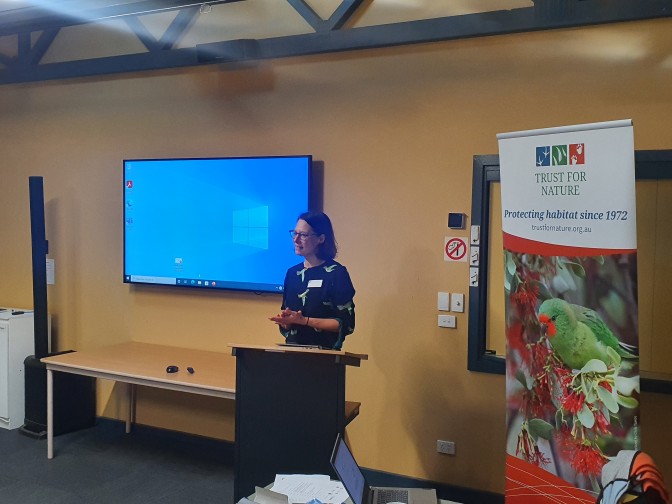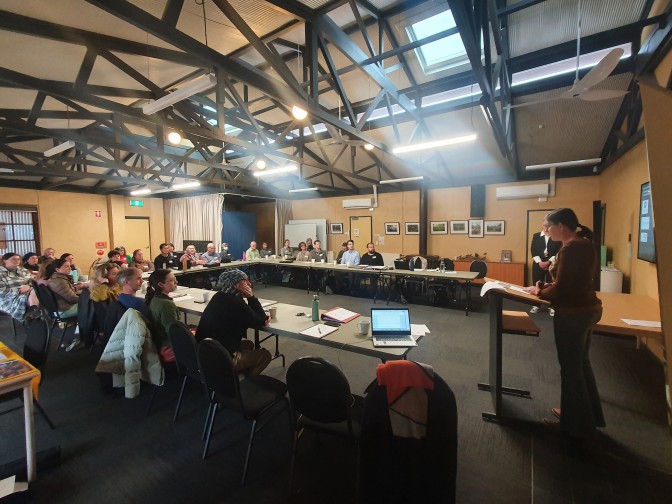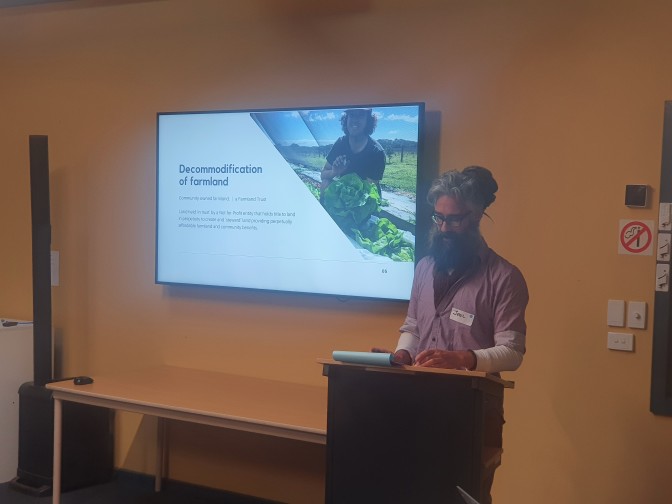Protecting our Sustainably Managed Farmland
Nick Rose, Executive Director, Sustain: the Australian Food NetworkFor the past 12 months, Sustain has been working with Trust for Nature, Ethical Fields, Young Farmers Connect and Cassinia Environmental on a collaborative project to develop models to tackle three big food system issues.
First, how do we protect our remaining farmland, especially in the peri-urban context close to our major cities?
This is critically important for future food security in the context of the climate emergency and increasingly uncertain geopolitical dynamics.
Second, how do we support and enable the transition to sustainable land and water management practices?
We know that to feed ourselves and future generations well, we have to work with our land and water catchments, restoring and regenerating soils and ecosystems.
And thirdly, how do we create mechanisms to foster the emerging and new generation of farmers?
As the old truism puts it, Where's the Food without the Farmer?
The project, jointly funded by the Lord Mayor's Charitable Foundation and the McLeod Family Foundation, aimed to develop a model that could achieve:
- Better protections for Melbourne’s remaining peri-urban farmland
- The adoption of sustainable farming practices and improved biodiversity, and
- More viable pathways for new and young farmers to enter agriculture, including through community ownership and collaborative management of farming systems.
Last Friday at the Edendale Centre in Nillumbik, the project report was launched to a highly engaged audience of 40 stakeholders, including established and new farmers, landowners, representatives of local and state government, and philanthropic foundations.
There was a great sense of optimism and positivity in the room, as Cecilia Riebl (Trust for Nature) and Rohan Clarke (Ethical Fields) delivered their presentation (you can view the slides here).
They summarised the project results:
-
The creation of a new 'farm covenant' and farm management plan for the Moonlight Creek estate in Rokewood, that:
- Requires the adoption of sustainable farming practices and protects biodiversity, and
- has been tested on the ground in the early establishment of the natural agriculture community at Moonlight Creek.
- The development of three viable models for collective land ownership and management, including the detailed exploration of new language and concepts around 'land trusts' that is appropriate for the Australian context
- The identification of funding opportunities in conversation with banks, impact investors and philanthropy.

They were followed by Annemaree Docking and Linda Martin-Chew of PlanItRural, who presented the results of the Farm to Plate Planning Audit (read the the full report and their presentation).

Joel Orchard, co-founder of Young Farmers Connect, concluded the presentations with an excellent overview of the Farmland trust model as it has been developed in North America and Europe, together with the benefits it creates for young people wishing to enter agriculture. His work, together with the PlanItRural study, was funded by the McLeod Family Foundation and delivered in partnership with Sustain.
We spent the final hour in round-table discussions delving deeper into the barriers and opportunities of the models presented, from the varying perspectives of landowners, funders, new farmers and local government. There was appetite and enthusiasm to continue this work in a spirit of collaboration, as a key part of the broader agenda for food and farming system transformation that Sustain and our partners are leading.
